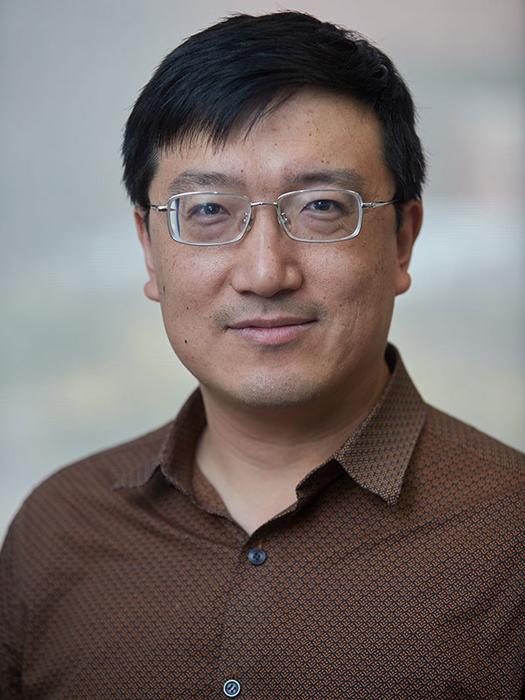NORMAN, OKLA. – Bin Wang, a professor in the School of Sustainable Chemical, Biological and Materials Engineering at the University of Oklahoma, has received a Friedrich Wilhelm Bessel Research Award from the Alexander von Humboldt Foundation. Wang was selected for his contributions to computational catalysis and physical chemistry.

Credit: The University of Oklahoma
NORMAN, OKLA. – Bin Wang, a professor in the School of Sustainable Chemical, Biological and Materials Engineering at the University of Oklahoma, has received a Friedrich Wilhelm Bessel Research Award from the Alexander von Humboldt Foundation. Wang was selected for his contributions to computational catalysis and physical chemistry.
The Bessel Award is funded by the German Federal Ministry of Education and Research to foster collaborative relationships between international academics and German researchers. The award includes a grant that supports up to 12 months of study in Germany.
In his research, Wang uses simulations to understand materials at the atomic level, providing insights into materials that can be used to accelerate chemical reactions. He will work with the Sustainable Materials Computational Materials Design department of the Max Planck Institute to use a machine learning approach to study solid-liquid interfacial chemistry. Wang says that because simulations of the solid-liquid interface include so much complexity, accurate simulation can be challenging. Machine learning techniques can help improve those simulations.
According to Wang, the collaboration could not come at a better time. Recently, OU’s School of Sustainable Chemical, Biological and Materials Engineering added “sustainable” to its name. “When people think about chemical engineering, the perception is that it’s all about oil and gas chemistry and operation,” he said. “That’s the reason [the school] changed the name, to show that our research and education is very broad and to achieve a sustainable future.”
This April, the Max Planck Institute for Iron Research did something similar, becoming the Max Planck Institute for Sustainable Materials.
“This really reflects what’s happening in the field right now. People are looking to sustainability and the challenges associated with it,” said Wang.
Wang has received numerous accolades during the span of his career, including an Early Career Award from the U.S. Department of Energy. He has been recognized as an Emerging Investigator by the Royal Society of Chemistry’s Catalysis Science & Technology and an Influential Researcher by the American Chemical Society’s Industrial & Engineering Chemistry Research.



